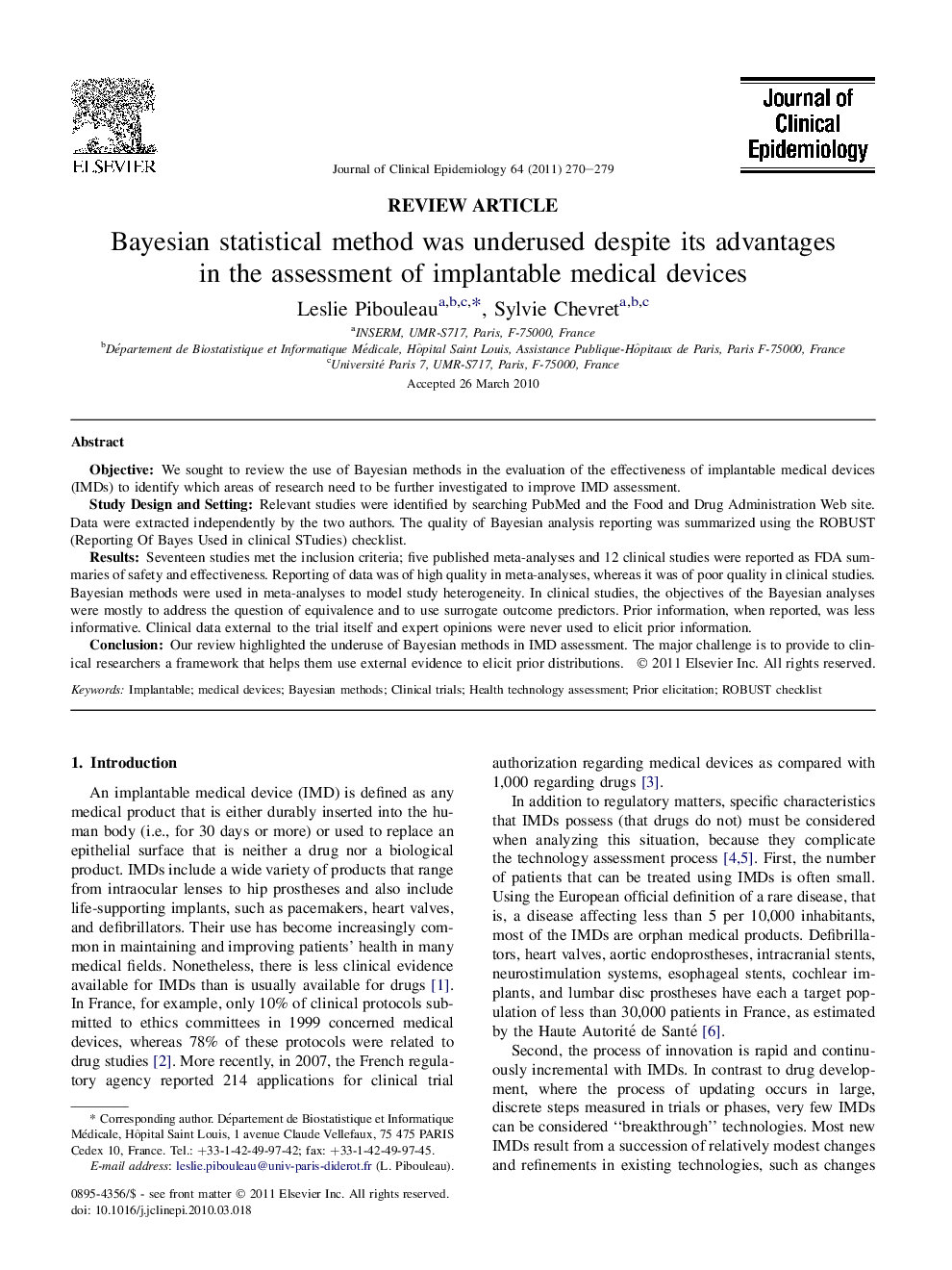| Article ID | Journal | Published Year | Pages | File Type |
|---|---|---|---|---|
| 1082424 | Journal of Clinical Epidemiology | 2011 | 10 Pages |
ObjectiveWe sought to review the use of Bayesian methods in the evaluation of the effectiveness of implantable medical devices (IMDs) to identify which areas of research need to be further investigated to improve IMD assessment.Study Design and SettingRelevant studies were identified by searching PubMed and the Food and Drug Administration Web site. Data were extracted independently by the two authors. The quality of Bayesian analysis reporting was summarized using the ROBUST (Reporting Of Bayes Used in clinical STudies) checklist.ResultsSeventeen studies met the inclusion criteria; five published meta-analyses and 12 clinical studies were reported as FDA summaries of safety and effectiveness. Reporting of data was of high quality in meta-analyses, whereas it was of poor quality in clinical studies. Bayesian methods were used in meta-analyses to model study heterogeneity. In clinical studies, the objectives of the Bayesian analyses were mostly to address the question of equivalence and to use surrogate outcome predictors. Prior information, when reported, was less informative. Clinical data external to the trial itself and expert opinions were never used to elicit prior information.ConclusionOur review highlighted the underuse of Bayesian methods in IMD assessment. The major challenge is to provide to clinical researchers a framework that helps them use external evidence to elicit prior distributions.
